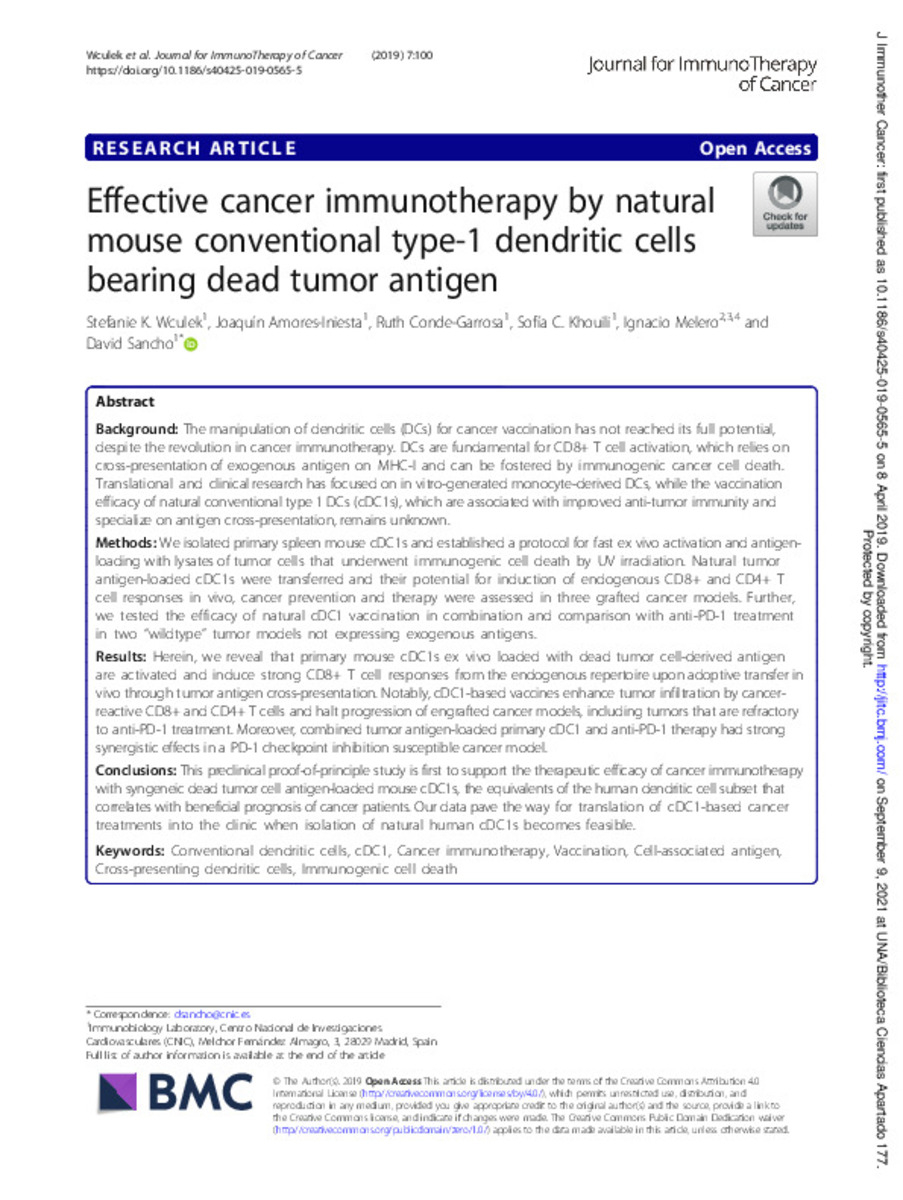Effective cancer immunotherapy by natural mouse conventional type-1 dendritic cells bearing dead tumor antigen
Keywords:
Materias Investigacion::Ciencias de la Salud::Inmunología
Conventional dendritic cells
cDC1
Cancer immunotherapy
Vaccination
Cell-associated antigen
Cross-presenting dendritic cells
Immunogenic cell death
Note:
This article is distributed under the terms of the Creative Commons Attribution 4.0 International License (http://creativecommons.org/licenses/by/4.0/), which permits unrestricted use, distribution, and reproduction in any medium, provided you give appropriate credit to the original author(s) and the source, provide a link to the Creative Commons license, and indicate if changes were made. The Creative Commons Public Domain Dedication waiver (http://creativecommons.org/publicdomain/zero/1.0/) applies to the data made available in this article, unless otherwise stated.
Citation:
Wculek, S.K. (Stefanie K.); Amores-Iniesta, J. (Joaquín); Conde-Garrosa, R. (Ruth); et al. "Effective cancer immunotherapy by natural mouse conventional type-1 dendritic cells bearing dead tumor antigen". Journal for ImmunoTherapy of Cancer. 7 (1), 2019, 1 - 16
Statistics and impact
0 citas en

Items in Dadun are protected by copyright, with all rights reserved, unless otherwise indicated.








